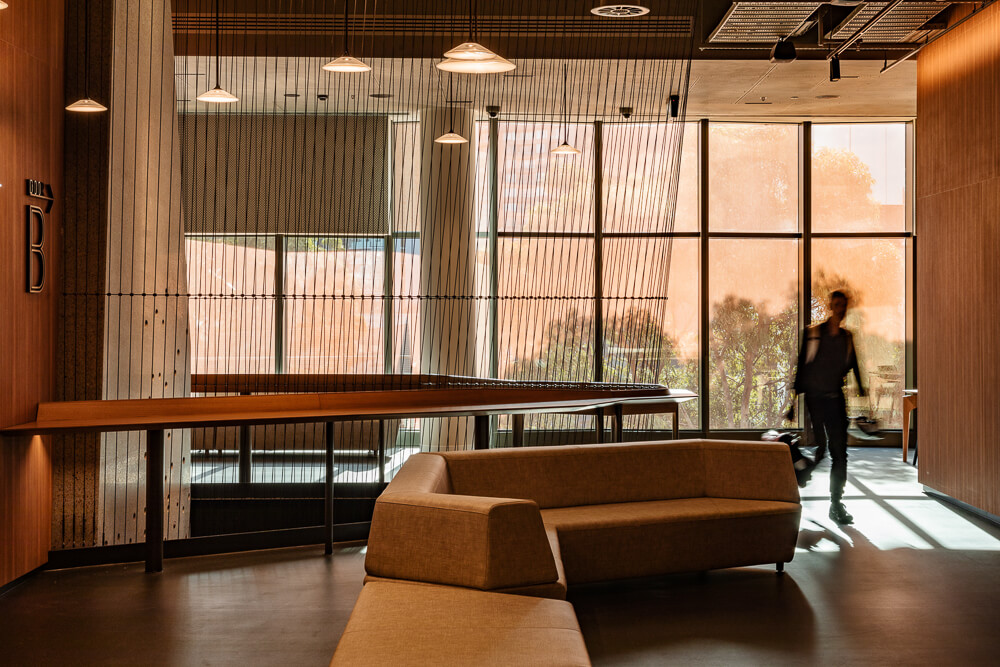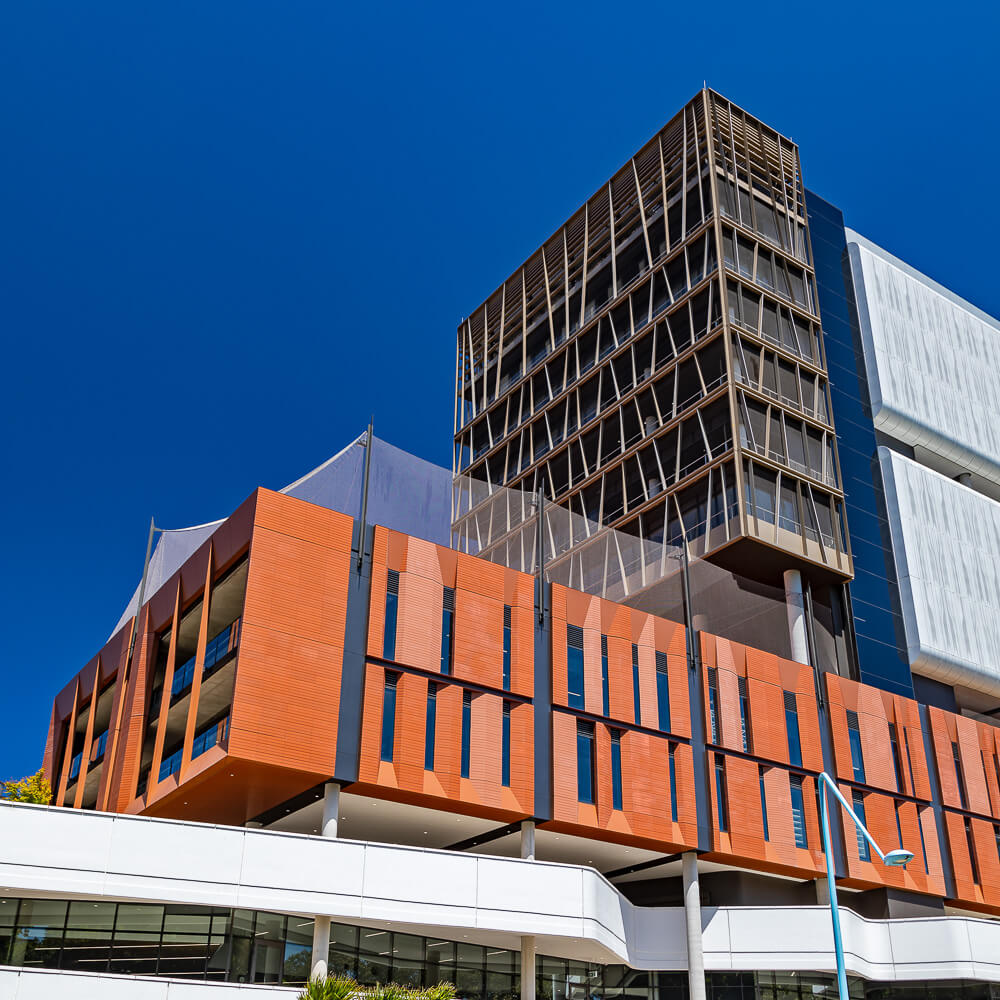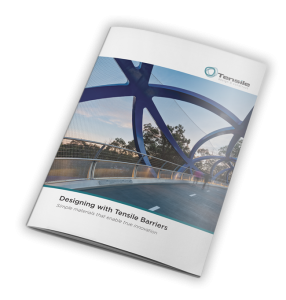Tensile barriers offer a range of benefits, some of which would not be achievable with standard commercial barrier materials like glass, Chainlink and perforated metal panels.
Here are eight great reasons for designing with Tensile barriers.
1. Strength, durability and longevity
Tensile barrier materials might appear light and simple in design but in fact have remarkably high strength. For example, a single 3mm cable has a breakage capacity of 520kg.
The strength and durability of the materials also contribute to the excellent longevity of Tensile barriers – up to 25 years.
By comparison, glass also has good longevity but only offers warranties of up to 10 years, while Chainlink performs quite poorly when it comes to longevity and durability.
2. Malleability and adaptability
Webnet has a fabric-like quality that enables it to conform to a wide range of geometric shapes. This means it can be draped over or wrapped around structures, or even formed into 3D sculptural shapes.
An example of Webnet’s malleability can be seen at the RFW Children’s Charity in Manly. In this project, the spiral staircase Webnet barrier has been formed into a corkscrew-like shape – something that had not been achieved before in Australia.
Tensile single cables can also offer flexibility for a commercial barrier. The atrium at the centre of Melbourne Music Conservatorium building for example changes in shape at various points, which meant it needed a very adaptable barrier. The vertical cables we installed were able to meet the brief in that they can move and splay between the levels – something that would be impossible with a more rigid material such as glass.

3. Low maintenance requirements
Being made from 316-grade (marine-grade) stainless steel means these materials have excellent corrosion-resistance. They can also maintain tension over a long time. In turn, this means Tensile barriers can last many years without too much maintenance or additional input.
The materials also do not attract smudges, fingerprints and scuff marks in the way glass does, so constant cleaning is not usually needed.
4. Lightweight, easy handling
Webnet is a lightweight rollable material, which makes it easy to ship and handle. This can also make for an easier and faster installation.
Take this outer-Melbourne multi-level carpark for example, which has been ‘wrapped’ in Webnet for fall protection. Not only did the use of Webnet allow the owner to avoid expensive structural modifications to the carpark – the whole barrier was installed within just three weeks!
5. Transparency
The thin profile and translucent appearance of Webnet and wire rope allow for the creation of near-transparent barriers. This offers a number of advantages:
- Non-obstruction of views – such as in the Inner Sydney High School barrier installation.
- Won’t interfere with or upstage the structure’s original architectural design.
- Allows in natural light, potentially saving money on artificial lighting – as in the case of the Carlton House mesh balustrade.
- Enables better airflow – especially beneficial for indoor barriers.

6. Customisable appearance
Tensile materials can be left ‘as is’, coloured neutrally to blend in with surrounding décor, or coloured brightly to stand out and make a bold statement.
Webnet can also be formed into a wide range of aperture-opening sizes and shapes depending on the requirements of the project – allowing for even greater customisation.
7. Accommodates large spans
Tensile barriers can accommodate very large spans, often continuously over several storeys. In this sense the materials perform far better than just about any other barrier material on the market.
8. Wide range of barrier materials available
This includes:
- Cable sizes – from 1mm up to 26mm diameter, in a range of configurations.
- Webnet mesh aperture-openings – ranging from 20mm-200mm in size.
- Webnet frames – customised in terms of size and formed from either circular or square hollow sections.
Need more information?
If you have a project idea in mind or would like to know more about designing with Tensile barriers, feel free to get in contact with the Tensile team.





































